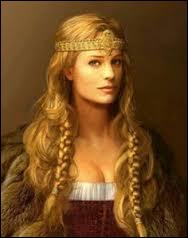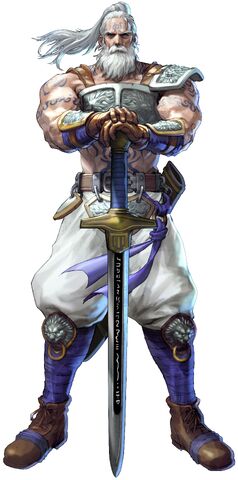Nightscape Member
STATUS: I had this awesome intro post lined up for my RP. Thank you power outage and thank you brain for not bother to save your work! 8 yrs ago- Last Seen: 8 yrs ago
- Joined: 8 yrs ago
- Posts: 31 (0.01 / day)
- VMs: 0
-
Username history
- Nightscape 8 yrs ago
Status
Recent Statuses
8 yrs ago
Current
I had this awesome intro post lined up for my RP. Thank you power outage and thank you brain for not bother to save your work!
2
likes
8 yrs ago
I spent my entire day off crafting a make believe world and I don't regret it one bit.
6
likes
8 yrs ago
"You know, an aquarium is really just a pet store that doesn't sell anything."
3
likes
8 yrs ago
I feel like the Incredible Hulk's pudgy brother. I'm gaining weight and my clothes are shrinking from the dryer.
Bio
User has no bio, yet
Most Recent Posts
@Fetzen I kind of got one going already, but thanks! I appreciate the offer and might take you up on that in the future. Trying to pace myself and not join a lot of RPs all at once. It can get tempting though because I can be impatient lol.
Here are the updates:
*History of Ardin and Monaxer* has been added to the OP. I'm not quite sure what happened but I just kept writing. Sorry. I hope the paragraphs don't scare you guys off! To help clear up potential confusion about family lineage here's the quick rundown:
1st Generation:
King Yit Arden and Queen Zetra
2nd Generation:
King Vetrusis (Great Grandpa) and his brother Nasef, Commander of the Monaxer Army. Vetrusis' wife, Queen Ania is not listed. She died giving birth to Dareth and Luci.
3rd Generation:
King Dareth (Grandpa) and Queen Wyelisa (mean grandma from Nelga), and his sister Lady Luci, now Priestess Luci of Loten. She is the wife of Waywarden Ukan, the closest thing to a ruler in Loten.
4th Generation:
King Tir (Pops) and Queen Lilas (Mom)
*NPCs*
Added a bunch of characters with small info about them. Please feel free to use any of them in your Childhood bio to establish connections for whatever scenario you'd like to draw up. If you want to add NPCs of your own, you can do that too.
*History of Ardin and Monaxer* has been added to the OP. I'm not quite sure what happened but I just kept writing. Sorry. I hope the paragraphs don't scare you guys off! To help clear up potential confusion about family lineage here's the quick rundown:
1st Generation:
King Yit Arden and Queen Zetra
2nd Generation:
King Vetrusis (Great Grandpa) and his brother Nasef, Commander of the Monaxer Army. Vetrusis' wife, Queen Ania is not listed. She died giving birth to Dareth and Luci.
3rd Generation:
King Dareth (Grandpa) and Queen Wyelisa (mean grandma from Nelga), and his sister Lady Luci, now Priestess Luci of Loten. She is the wife of Waywarden Ukan, the closest thing to a ruler in Loten.
4th Generation:
King Tir (Pops) and Queen Lilas (Mom)
*NPCs*
Added a bunch of characters with small info about them. Please feel free to use any of them in your Childhood bio to establish connections for whatever scenario you'd like to draw up. If you want to add NPCs of your own, you can do that too.
@HushedWhispers Yeah, everyone should turn both in.
@Fabricant451@HushedWhispers Why hello there twin sisters!
In
Fantasy Epic Trio - An Action Revenge Story - (Need two people)
→
8 yrs ago
Forum: Casual Interest Checks
Twins are cool with me!
Also, here is the OOC
Still need to add info about the royal family and land their rule. Should be up either later tonight or tomorrow.
Also, here is the OOC
Still need to add info about the royal family and land their rule. Should be up either later tonight or tomorrow.
Character Sheet
Feel free to organize your sheet to your liking. Just make sure it has this basic outline:
A. Childhood - ACT I Sheet
Name:
Age:
Appearance: (pics are welcomed here)
Ardin Relation: (Middle/Twin*10-9 - years old*,*8 years old* - Youngest, *11-8 - years old* Unrelated)
Personality:
Bio: (You'll need more context on the Ardins and Monaxer, which I'll try and have up asap under the Realms hider. For now think up your upbringing and things enjoyed doing/aspired to be. Relations with siblings and unrelated can be detailed here.)
B. Adulthood - ACT II Sheet
Name: (Fake name or nickname you go by now)
Age: (+ 10 years Childhood Sheet age)
Class: (Assassin, Knight (I'll be taking this one), Gladiator, Pirate, etc.)
Appearance: (Pics are a must, but don't post them on your sheet. The idea will be to reveal the pic in your first ACT II post. Keep this part written and very basic. Height, weight, build, clothes/armor worn.)
Abilities:
Skills:
Equipment:
Bio: (I'd like for this to be a pretty basic outline of where your character traveled off to or did up until this point. Leave out all of the juicy stuff for actual dialogue in ACT II during our reunion interaction.)
NPCs
The Daggers of Monaxer

"I write this to you with all of my heart. Our kingdom has fallen. I care not for ivory towers or mounds of gold. The life force of a King is emboldened by his children. I think about each of you as I write this, yet memories of better times are like phantoms at this grim hour. You must be strong now. My eyes will not witness your grandest achievements. My hands will not comfort your pain or chastise your foolishness. My voice will not sing the tales of our Ardin name. Survive, my little daggers. Be strong. Remember us not as King or Queen, but as father and mother. We await you on the otherside, where Uleth will carry you upon Silver Winds to the Golden Clouds."
In
Fantasy Epic Trio - An Action Revenge Story - (Need two people)
→
8 yrs ago
Forum: Casual Interest Checks
@HushedWhispers@Fabricant451@Joker892@Solaris Thanks everyone! I'll get an official thread up later tonight.
So just so I can organize this in my head: Hush and Fab will be sisters, and Joker will possibly be a brother?
Solaris, as mentioned before, you can play as a child to one of the King's advisors/knights.
Keep in mind we'll be making two character sheets; One for when we're kids and one for when we're adults. I'll have all the details soon.
So just so I can organize this in my head: Hush and Fab will be sisters, and Joker will possibly be a brother?
Solaris, as mentioned before, you can play as a child to one of the King's advisors/knights.
Keep in mind we'll be making two character sheets; One for when we're kids and one for when we're adults. I'll have all the details soon.
© 2007-2025












